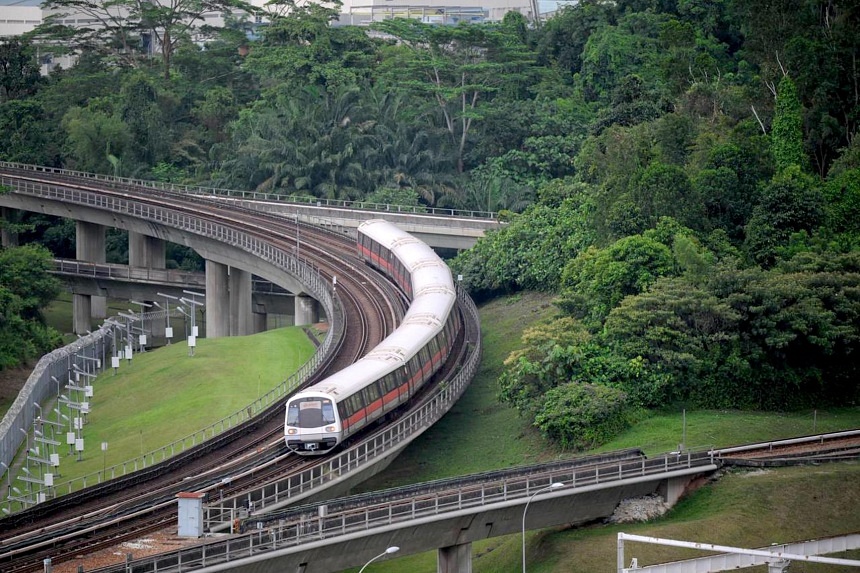SINGAPORE – Even before the ongoing investigations into the major disruption on the East-West Line (EWL) in September have drawn conclusions, concern has mounted over the reliability of the entire MRT network.
In Parliament last week, some 21 MPs posed questions on two main topics: Is the current maintenance regime of the MRT network sufficient and are the operators committing enough resources to ensure that it remains reliable?
It could be that the breakdown on the EWL was a one-off episode – albeit a very disruptive one – rather than something stemming from a fundamental issue in the way rail maintenance is handled.
Still, the concern is understandable, given the massive impact of the incident.
On each of the six days that service stopped on the EWL, 500,000 out of 2.8 million MRT journeys were affected. Among those affected were children taking the Primary School Leaving Examination (PSLE) and N-level examinations. Daily commuters who relied on the train had to make different arrangements that were less than ideal in terms of time, expense and effort.
Mr Gan Thiam Poh (Ang Mo Kio GRC) and Workers’ Party MP Dennis Tan (Hougang) were among the MPs who wanted to know if the existing maintenance regime needed a relook. Others, like Mr Saktiandi Supaat (Bishan-Toa Payoh GRC), questioned if the operators had taken their foot off the pedal on maintenance efforts.
Transport Minister Chee Hong Tat responded that as part of the ongoing investigation, the existing processes for maintenance are also being checked. This is on top of the regular review of such protocols that is conducted with operators SMRT and SBS Transit.
He also said that the two rail operators have not cut back on their maintenance efforts.
“When we look at the amount that they are spending, they have both continued to focus on maintenance and building up the engineering and technical expertise, which is equally important, the talent pool. That is something which will remain a priority for LTA and the operators,” said Mr Chee.
In the current set-up, the operators are responsible for the maintenance of the rail infrastructure, and operating assets like the trains and signalling systems. The Land Transport Authority (LTA), as the owner, plans the building up, replacements and upgrading of these assets.
Mr Chee also noted that the MRT network is much more robust today than it was in the past.
Slightly over a decade ago, breakdowns and disruptions were more frequent.
In 2012, trains travelled an average of 67,000km before experiencing a service delay of at least five minutes.

